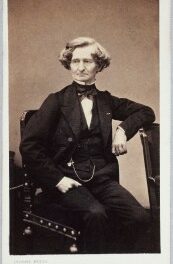We support our Publishers and Content Creators. You can view this story on their website by CLICKING HERE.
Jimmy Carter was a nice, good man who epitomized American Christianity’s reduction to Moralistic, Therapeutic Deism. As such, the singing of John Lennon’s atheistic “Imagine”—Carter’s favorite song—at the former president’s funeral was entirely appropriate.
 Last week at former president Jimmy Carter’s funeral, country singers Garth Brooks and Trisha Yearwood sang ex-Beatle John Lennon’s song Imagine, and Christian social media erupted in dismay. Bishop Robert Barron expressed the disapproval of many Christians—describing the performance as “appalling.” He highlighted the lyrics, noting they included phrases like “Imagine there’s no heaven; it’s easy if you try” and “imagine there’s no country; it isn’t hard to do. Nothing to kill or die for, and no religion too.” Barron called it a “hymn to atheistic humanism” and suggested it was an insult to Carter’s memory as a devout Christian and an indicator of the “spinelessness” of much of established religion in the country.
Last week at former president Jimmy Carter’s funeral, country singers Garth Brooks and Trisha Yearwood sang ex-Beatle John Lennon’s song Imagine, and Christian social media erupted in dismay. Bishop Robert Barron expressed the disapproval of many Christians—describing the performance as “appalling.” He highlighted the lyrics, noting they included phrases like “Imagine there’s no heaven; it’s easy if you try” and “imagine there’s no country; it isn’t hard to do. Nothing to kill or die for, and no religion too.” Barron called it a “hymn to atheistic humanism” and suggested it was an insult to Carter’s memory as a devout Christian and an indicator of the “spinelessness” of much of established religion in the country.
Bishop Barron is right about the spinelessness of much established Christianity in the USA, but I think he missed the point that the ex president and Mrs Carter had both chosen that song to be performed at their funeral. As such it indicated not only the sentimental spinelessness of much established Christianity, but also the heart of the Carters’ own creed (or lack thereof). Carter was famous for his toothy grin and as a devoted Christian believer of the Southern Baptist denomination. He taught Sunday School in his home town church and was properly honored for the humanitarian work he pursued after his notoriously unremarkable presidency. He built houses for poor people and worked for peace and justice through a polite and dignified diplomatic presence on the world stage. While this is laudable, it is worth asking what, exactly was the theological underpinnings of Carter’s good works.
John Lennon’s song would seem to be the answer. That is to say there was no theological underpinnings to Carter’s smiling good works. There was no heaven and no hell and no religion too. There was simply a smile, kindness, and the offering of a helping hand. In other words, a Christianity that has been boiled down to MTD: Moralistic, Therapeutic Deism.
Moralism is the reduction of Christianity not just to doing good works (although that is to be expected) but to being a nice, kind, smiling, respectable person. Moralism makes no real demands. As long as one doesn’t rock the boat, remains quiet, and strives for tolerance in all things, moralism’s motto is “Why can’t we all just get along?”
Therapeutic Christianity reduces the historic Christian faith to “a belief system that will make you (and the world) better. Going to church will help you with your family problems, your addictions, and your worries and fears. It will help you parent your troublesome teens. Meditation and prayer will relieve your stress, make you more calm and more compliant. Christianity will also help to make the world a better place. Good Christians will work for peace, get involved to solve the climate crisis, welcome immigrants, the homeless, the downtrodden, and the marginalized.
Deism is the belief that there is a god, but he is on the other side of the clouds having a nap. Deism is, in fact, simply a coward’s form of atheism because if there is a god who is both indifferent and incompetent, then that entity is not really Almighty God, and if there is no Almighty God, then Lennon’s banal song is the proper national anthem.
Jimmy Carter was a nice, good man who epitomized American Christianity’s reduction to Moralistic, Therapeutic Deism.
Now the problem with criticizing MTD is that one is accused of being heartless and lacking in compassion for the needy. Attack MTD and you’ll be accused of ignoring the second commandment to love your neighbor as yourself. The charge is a scarecrow—a straw man. Of course Christians are to care for the needy, work for peace and justice, be good stewards of the environment, help the homeless, care for the dying, etc. But while this is what Christians do, it is not Christianity. Christianity is not less than being good. It is more than being good.
It should be obvious that Moralistic, Therapeutic Deism is, at best, a reduced form of Christianity (and thus a heresy), for heresy is not a total lie. It is a half-truth.
MTD is the ancient heresy of Arianism taken down, dusted off, and remodeled for the modern age. The Arians were famous for being members of the educated, elite, established ruling class. By minimizing (and thus denying) the fullness of the incarnation they fabricated a form of Christianity that was acceptable, respectable, and relatable. Arianism was nice. It recommended good works, helping people and the world to be better, and while it did not explicitly teach Deism, its reduction of the divinity of Christ had the same effect.
Moralistic, Therapeutic Deism is therefore not Christianity. It is not even a religion because every religion everywhere in every epoch has been an encounter of human beings with the divine. MTD is not a religion. It is an ideology that is followed by some religious people.
More worrisome is the fact that MTD is precisely the sort of “religion” that any worldly totalitarian state would endorse. Recognizing humanity’s instinct for religion, the smart rulers in a totalitarian government would not ban religion. They would promote a “religion” that was no more than MTD. Why? Because who could possibly be opposed to a religion that calls everyone to be nice, compliant and tolerant?— a religion that helps people?—a religion that makes the world a better place?—a religion unencumbered by “superstition, dogma and an unscientific metaphysic?”
This, of course, is the attractive ideology of communism: to be good, to help people, to make the world a better place—and to do so without God. John Lennon himself agreed that Imagine could be interpreted as a communist anthem.
Maybe the songwriter’s name was misspelled.
The Imaginative Conservative applies the principle of appreciation to the discussion of culture and politics—we approach dialogue with magnanimity rather than with mere civility. Will you help us remain a refreshing oasis in the increasingly contentious arena of modern discourse? Please consider donating now.
The featured image is a photograph of John Lennon, as pictured in an advertisement for Imagine from Billboard, 18 September 1971, and is in the public domain, courtesy of Wikimedia Commons.
Share This Story, Choose Your Platform!
Go to Top

 Conservative
Conservative  Search
Search Trending
Trending Current News
Current News 






